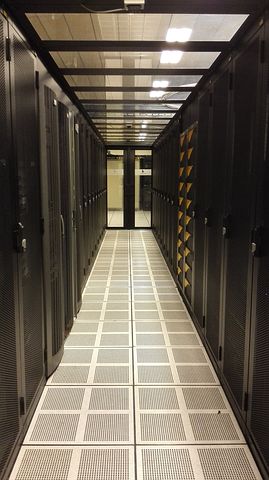
If I said to you ‘online shopping’ I’m willing to wager a healthy sum that you’d immediately think ‘Amazon’. Although they weren’t the first online marketplace, 25 years after launch they’re surely the largest and most diversified. There’s a lot for Jeff Bezos to be very proud of. His global online store really does provide anything. From a variety of aardvark related goods, to zombie survival guides and a President Trump fortune teller ball in between, they’ve got your every (perhaps unnecessary?) whim covered. And if you need something important, like more information about the environmental catastrophe which is climate change, there are books and films aplenty. But apart from availing for purchase some wise words penned by others on this existential global issue, where does Mr Bezos himself stand? Until recently, anonymously in the shadows.
Every year for 15 years the CDP (Carbon Disclosure Project, a non-profit global environmental disclosure platform) have been ignored or refused in their requests for carbon emissions data from the tech giant. More than 7,000 companies across the globe willingly participated in the voluntary data collection in 2018. But there are some big players missing, and Amazon has been one, along with 706 others who also refuse to offer emissions transparency. Companies like Exxon Mobile, BP, Volvo, Qantas Airways and Chevron. It doesn’t take a climate scientist to see the link here: companies who are well aware that their carbon footprint is exceedingly huge. Most of these 706 companies are involved in the fossil fuel, transportation or manufacturing industries. It would seem obvious that their silence is in fact a screaming guilty conscience.

The problem with Amazon not coming to the CDP party is that they claim to be “committed to and invested in sustainability”. In fact, in February this year they launched ‘Shipment Zero’, which is the goal of making 50% of their shipments to customers net zero carbon by 2030. Sounds like a great idea! Especially when you consider that in 2017 their deliveries alone emitted 19 million metric tons of carbon into the atmosphere! But let’s not get too excited: Mr Bezos is maintaining a veil of secrecy here also, with zero detailed plans on how Shipment Zero is planning to succeed.

With a huge workforce comes the potential for a louder voice. And Amazon employees have found theirs. Late last year an open letter to Jeff Bezos and the Board of Directors was written by 16 employees (who are also shareholders) which contained proposals to be submitted for voting by the Board at the annual shareholder meeting. Subsequently, this letter was signed by 7,934 employees (and counting). They want a thorough and transparent public report on how the company is planning to address climate change and reduce their dependence on fossil fuels. They also want a more aggressive company wide climate change plan. The letter was eloquent while being straight forward; polite but firm; addressed some of the ‘hidden’ facets of Mr Bezos’ Shipment Zero plan; and contained 23 environmental and/or scientific references. However, all proposals were turned down. In light of Mr Bezos’ very recent decision to (finally!) disclose the company’s carbon emissions later this year, the vote seems hypocritical. So too was Mr Bezos’ decision not to even acknowledge the representatives of the movement (@AMZNforClimate, which is now nearly 8,000 members strong), who pitched the proposal in person.
While the CDP work on a voluntary basis, The Australian Government’s Clean Energy Regulator (CER) requires mandatory reporting from companies with over 50,000 tonnes of emissions. Historically this has been predominantly energy and mining companies, but big data companies like IBM and Amazon now contribute enough emissions to be included. Amazon however, who launched locally in Australia in December 2017, have refused to provide this required emissions data for 2017-2018. They have applied to CER to be excluded, citing ‘trade secrets’, and this application is under assessment currently.

Speaking of data, let’s discuss AWS. Amazon Web Services is the biggest cloud computing provider in the U.S., and with big data centers comes big carbon emissions. So perhaps it’s AWS posing the real climate change issue, with over 1 million customers (including Verizon, Netflix and the CIA…I’m not saying this is related, but did you know real people might listen when you speak to Alexa?). There are approximately 110 data centers globally which each consume the same energy as a small town! Despite Amazon’s verbal commitment to using renewables energies, most of these centers are running on fossil fuels. Not so, however, for Google. They have been carbon neutral every year since 2007, and since 2017 have been purchasing enough renewable energy to match 100% of their global electricity usage. So you see, it can be done.
In the spirit of fairness, let me say that Amazon are doing some good things: more environmentally friendly packaging (and less of it); investing in and working with renewable energies; investing in recycling solutions; and collaborating with Feeding America to not waste food and instead donate to those who need it.
But on facing the reality of climate change, Amazon are truly lagging behind. And this is not an issue to be slow or sloppy with. So we need to stand with the nearly 8,000 Amazon employees (in fact by the time you’re reading this, I’m sure that number will be higher) and demand a better example be set by one of the world’s leading tech companies. So if you’re one of the 100 million Amazon Prime members, perhaps it’s worth canceling and saving that membership fee ($119 annually or $12.99/month!) to not have express, free delivery: do you REALLY need that product in 2 hours (or even 2 days)?? It’s time we recalibrated our priorities and started following a different path. Free delivery for us isn’t free for the environment.




